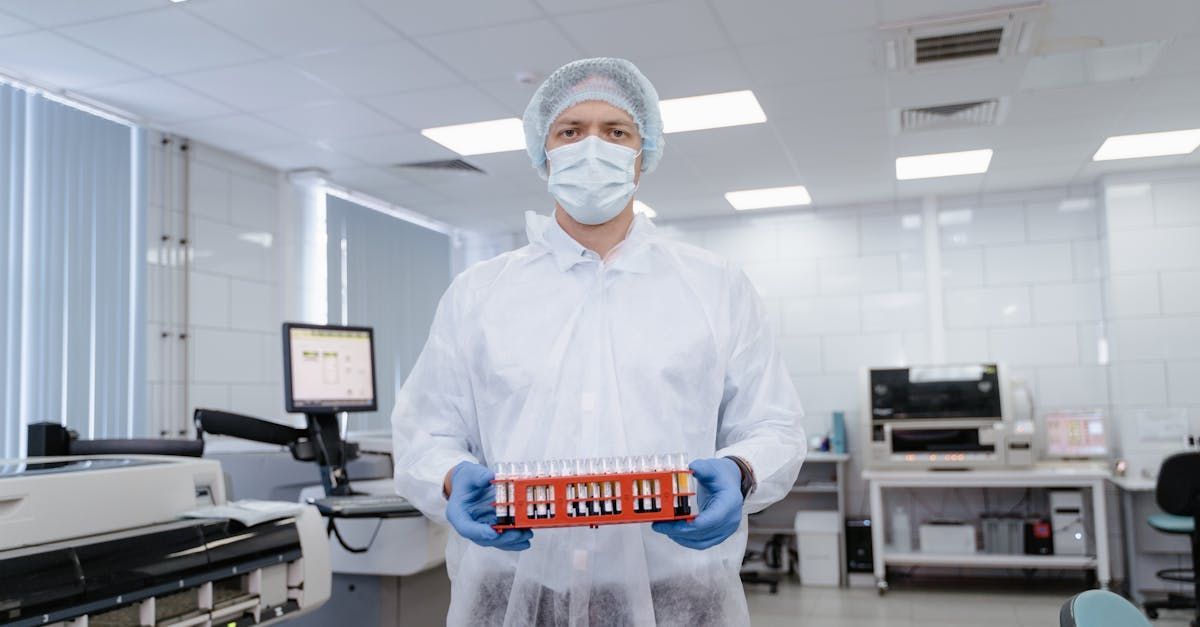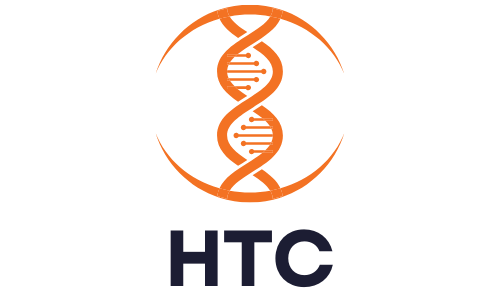The Role of Artificial Intelligence in Diagnostics
Diagnostics play a crucial role in healthcare, serving as the foundation for disease detection, treatment planning, and patient management. Accurate and timely diagnostics can significantly improve patient outcomes and reduce healthcare costs. However, traditional diagnostic methods often face limitations in terms of speed, accuracy, and accessibility. Enter artificial intelligence (AI), a transformative technology poised to revolutionize the field of diagnostics. AI has the potential to enhance the accuracy, efficiency, and scope of diagnostic processes, paving the way for earlier detection of diseases and more personalized treatments. This blog explores the role of AI in diagnostics, highlighting its benefits, challenges, future trends, and investment opportunities.
Understanding AI in Diagnostics
Artificial intelligence in diagnostics involves the use of advanced algorithms and machine learning techniques to analyze medical data and assist in diagnosing diseases. Key components of AI in diagnostics include machine learning, neural networks, natural language processing (NLP), and computer vision. These technologies enable AI systems to process vast amounts of data, recognize patterns, and make predictions with high accuracy.
Machine learning algorithms learn from large datasets, improving their performance over time without being explicitly programmed. Neural networks, a subset of machine learning, are designed to mimic the human brain's structure and function, making them particularly effective at recognizing complex patterns in data. NLP allows AI systems to understand and interpret human language, enabling them to analyze unstructured data such as medical records and research papers. Computer vision, on the other hand, enables AI to interpret visual information, such as medical images, and detect abnormalities.
Examples of AI applications in diagnostics are numerous and span various medical fields. For instance, AI algorithms are used to analyze medical images for signs of cancer, predict the risk of cardiovascular diseases based on patient data, and diagnose rare genetic disorders by examining genomic data. These applications demonstrate the vast potential of AI to transform diagnostic processes and improve patient care.
Benefits of AI in Diagnostics
AI has the potential to significantly enhance the accuracy of diagnostics by reducing human error and providing more precise analyses. For example, AI algorithms can analyze medical images with higher accuracy than human radiologists, identifying subtle changes that might be missed by the human eye. This improved accuracy leads to more reliable diagnoses and better patient outcomes.
In addition to accuracy, AI improves the efficiency of diagnostic processes. AI systems can process large volumes of data much faster than humans, reducing the time required for diagnosis. This speed is particularly crucial in emergency situations where timely diagnosis can be life-saving. Furthermore, AI can handle repetitive and time-consuming tasks, freeing up healthcare professionals to focus on more complex and patient-centric activities.
One of the most significant benefits of AI in diagnostics is its ability to detect diseases at an early stage. Early detection is vital for conditions such as cancer, where the chances of successful treatment are much higher when the disease is caught early. AI algorithms can analyze data from various sources, including medical records, imaging studies, and genetic tests, to identify early signs of disease. This capability allows for prompt intervention and potentially better health outcomes.
Moreover, AI can play a crucial role in disease prevention by predicting the risk of developing certain conditions. By analyzing genetic data and lifestyle factors, AI systems can identify individuals at high risk and recommend preventive measures. This proactive approach can help reduce the incidence of chronic diseases and improve population health.
AI-driven diagnostics can lead to significant cost savings for healthcare systems. By improving the accuracy and efficiency of diagnostics, AI reduces the need for repeated tests and unnecessary procedures. This reduction in redundant testing not only lowers costs but also minimizes the burden on patients.
Furthermore, AI can optimize the use of healthcare resources by streamlining diagnostic workflows. Automated analysis of medical images, for example, can reduce the workload of radiologists, allowing them to focus on more complex cases. This optimization leads to better utilization of healthcare personnel and facilities, ultimately enhancing the overall efficiency of the healthcare system.
How Notable Labs is Innovating Diagnostics with Artificial Intelligence
Notable Labs is at the forefront of revolutionizing diagnostics through the integration of artificial intelligence, transforming the landscape of modern healthcare. By harnessing the power of advanced AI technologies, Notable Labs enhances the accuracy, efficiency, and speed of diagnostic processes, ensuring precise and timely patient care. Their AI-driven solutions meticulously analyze vast amounts of genetic and molecular data, enabling early detection and the development of personalized treatment plans for a variety of diseases.
Incorporating AI into diagnostics allows Notable Labs to provide more accurate diagnoses, which is critical in the early detection of diseases such as cancer, neurological disorders, and rare genetic conditions. This precision reduces the likelihood of misdiagnoses and unnecessary treatments, leading to better patient outcomes and more effective use of healthcare resources. Notable Labs' commitment to integrating AI into diagnostics exemplifies the transformative potential of this technology, setting a new standard for medical advancements and significantly improving health outcomes.
Moreover, Notable Labs collaborates closely with leading healthcare providers and research institutions, ensuring that their AI-driven diagnostic tools are continuously refined and validated in real-world clinical settings. This collaborative approach not only accelerates the adoption of AI in diagnostics but also fosters innovation and the development of new, cutting-edge diagnostic solutions.
Through its dedication to evidence-based practices and clinical excellence, Notable Labs is redefining the possibilities of diagnostic technology. Their AI-driven methodologies support the creation of comprehensive and personalized healthcare strategies, providing patients with tailored treatments that are more effective and less invasive. As a leader in the field, Notable Labs is not only advancing diagnostic capabilities but also paving the way for a future where AI plays an integral role in healthcare, ultimately leading to improved patient care and better health outcomes worldwide.
Notable Labs' pioneering efforts in integrating AI into diagnostics demonstrate a visionary approach to healthcare, where technology and medicine converge to offer unprecedented levels of precision and care. By setting new benchmarks in diagnostic accuracy and efficiency, Notable Labs is ensuring that the future of healthcare is one where every patient receives the most effective and individualized treatment possible, revolutionizing the way we understand and approach disease diagnosis and management.
Case Studies of AI in Diagnostics
AI-Driven Diagnostic Solutions in Oncology
In the field of oncology, AI has shown remarkable potential in improving cancer diagnostics. One notable example is the use of AI algorithms to analyze mammograms for breast cancer detection. Traditional mammogram analysis is subject to human error and variability, but AI systems can provide consistent and highly accurate results. Studies have shown that AI algorithms can detect breast cancer at earlier stages than human radiologists, leading to improved survival rates for patients.
Another area where AI has made significant strides is in the diagnosis of skin cancer. AI-powered tools can analyze images of skin lesions and accurately differentiate between benign and malignant conditions. These tools have proven to be as effective as, and sometimes more accurate than, experienced dermatologists in identifying skin cancer. This technology is particularly valuable in regions with limited access to specialized dermatology services, as it enables early and accurate diagnosis through telemedicine platforms.
AI in Cardiovascular Diagnostics
Cardiovascular diseases are a leading cause of morbidity and mortality worldwide. AI is playing a critical role in enhancing the diagnosis and management of these conditions. For instance, AI algorithms can analyze electrocardiograms (ECGs) to detect arrhythmias and other heart abnormalities with high accuracy. These algorithms can identify patterns that may be indicative of underlying heart conditions, enabling timely intervention.
Additionally, AI-driven predictive models can assess a patient's risk of developing cardiovascular diseases based on various factors, including genetic data, medical history, and lifestyle. By identifying high-risk individuals, healthcare providers can implement preventive measures and tailor treatment plans to reduce the risk of adverse cardiovascular events.
AI in Rare Disease Diagnosis
Diagnosing rare diseases can be particularly challenging due to their low prevalence and complex presentations. AI is revolutionizing the diagnosis of rare diseases by analyzing genetic data and recognizing patterns associated with specific conditions. One example is the use of AI in diagnosing rare genetic disorders through whole-genome sequencing. AI algorithms can analyze vast amounts of genetic data to identify mutations and genetic variations that may be responsible for a patient's symptoms.
In one notable case, AI was used to diagnose a rare genetic disorder in a young patient who had undergone extensive testing without a definitive diagnosis. The AI system analyzed the patient's genomic data and identified a previously undetected genetic mutation, leading to an accurate diagnosis and appropriate treatment. This case highlights the potential of AI to uncover rare diseases that may be missed by traditional diagnostic methods.
Challenges and Risks
Technical Challenges
Despite the significant advancements in AI-driven diagnostics, several technical challenges remain. One major challenge is the need for high-quality data to train AI algorithms. The accuracy and reliability of AI systems depend on the quality and diversity of the data used for training. Inadequate or biased data can lead to inaccurate predictions and diagnostic errors. Ensuring the availability of comprehensive and representative datasets is crucial for developing robust AI diagnostic tools.
Another technical challenge is the interpretability of AI algorithms. Many AI systems, particularly those based on deep learning, operate as "black boxes" with complex decision-making processes that are difficult to interpret. This lack of transparency can be problematic in clinical settings, where healthcare providers need to understand and trust the decisions made by AI systems. Developing explainable AI models that provide insights into their decision-making processes is essential for gaining the trust of healthcare professionals and patients.
Regulatory and Compliance Hurdles
The integration of AI in diagnostics also faces regulatory and compliance challenges. Regulatory bodies such as the FDA and EMA have stringent requirements for the approval of medical devices and diagnostic tools. Ensuring that AI-driven diagnostic systems meet these regulatory standards can be a complex and time-consuming process. Additionally, the regulatory framework for AI in healthcare is still evolving, and navigating this landscape requires careful consideration of compliance requirements.
Data privacy and security are also significant concerns. AI systems often require access to sensitive patient data, and protecting this data from breaches and unauthorized access is paramount. Compliance with data protection regulations, such as HIPAA in the United States and GDPR in Europe, is essential to safeguard patient privacy and maintain public trust in AI-driven diagnostics.
Strategies for Overcoming Challenges
To address the challenges and risks associated with AI in diagnostics, several strategies can be implemented. Ensuring the availability of high-quality and diverse datasets is critical for training accurate and reliable AI models. Collaborating with healthcare institutions and organizations to create comprehensive data repositories can enhance the quality of training data.
Developing explainable AI models is essential for increasing the transparency and trustworthiness of AI-driven diagnostics. Techniques such as attention mechanisms, feature importance analysis, and model interpretability tools can help make AI systems more understandable to healthcare providers.
Engaging with regulatory bodies early in the development process can facilitate the approval of AI diagnostic tools. Building strong relationships with regulators and demonstrating compliance with established standards can streamline the regulatory approval process.
Implementing robust data privacy and security measures is crucial for protecting patient data. Encryption, access controls, and regular security audits can help safeguard sensitive information and ensure compliance with data protection regulations.
Future Trends and Innovations
The field of AI diagnostics is rapidly evolving, with several emerging trends and innovations poised to shape its future. One notable trend is the increasing use of AI for real-time diagnostics and monitoring. Wearable devices equipped with AI algorithms can continuously monitor vital signs and detect early signs of health issues. For example, AI-powered smartwatches can monitor heart rate, blood oxygen levels, and sleep patterns, providing valuable insights into a user's health status.
Another trend is the integration of AI with telemedicine platforms. Telemedicine has gained significant traction, especially during the COVID-19 pandemic, as a means of providing remote healthcare services. AI-driven diagnostic tools can enhance telemedicine by enabling remote diagnosis and monitoring. Patients can use AI-powered apps to capture medical images, record symptoms, and receive preliminary diagnoses from the comfort of their homes.
Advancements in AI and related technologies are continuously expanding the capabilities of AI diagnostics. One significant advancement is the development of federated learning, a collaborative machine learning approach that enables AI models to be trained across multiple decentralized devices or servers without sharing raw data. This approach enhances data privacy and security while leveraging diverse datasets for improved model performance.
Another advancement is the use of natural language processing (NLP) in diagnostic applications. NLP allows AI systems to analyze unstructured text data, such as medical records and research papers, to extract valuable information. This capability is particularly useful in clinical decision support systems, where AI can provide evidence-based recommendations to healthcare providers.
The next decade holds immense potential for AI diagnostics, with several key developments expected to shape the field. AI-driven diagnostics will become increasingly integrated into routine clinical practice, providing real-time decision support to healthcare providers. The combination of AI with wearable devices and telemedicine will enable continuous health monitoring and early intervention, reducing the burden on healthcare facilities and improving patient outcomes.
AI will also play a pivotal role in precision medicine, enabling personalized treatment plans based on a patient's genetic, molecular, and clinical data. Predictive analytics will identify individuals at high risk of developing certain conditions, allowing for targeted preventive measures. The integration of AI with genomic sequencing and biomarker analysis will further enhance the accuracy and specificity of diagnostics.
Investment Opportunities in AI Diagnostics
The AI diagnostics market offers numerous investment opportunities, with several companies at the forefront of innovation. Companies specializing in AI-driven medical imaging, such as Zebra Medical Vision and Aidoc, are leveraging AI to enhance the accuracy and efficiency of radiology. Genomic data analysis companies like Tempus and Foundation Medicine are using AI to identify genetic mutations and guide personalized treatment plans.
Investors should look for companies with a strong track record of technological innovation, robust clinical validation, and strategic partnerships with healthcare institutions. Companies that prioritize data privacy and security, comply with regulatory standards, and have a clear path to commercialization are well-positioned for success.
When investing in AI diagnostics, several factors should be considered. First, investors should assess the quality and diversity of the company's data sources. High-quality data is essential for training accurate and reliable AI models. Investors should also evaluate the company's technological capabilities, including the sophistication of its AI algorithms and the scalability of its solutions.
Regulatory compliance is another critical factor. Companies that have successfully navigated regulatory approval processes and demonstrated compliance with data protection regulations are more likely to gain market acceptance. Investors should also consider the company's business model and revenue potential. Companies that offer scalable and cost-effective solutions with clear value propositions are more likely to achieve long-term success.
Long-Term vs. Short-Term Investment Strategies
Investors in AI diagnostics can adopt either long-term or short-term investment strategies, depending on their risk tolerance and investment goals. Long-term investors may focus on companies with strong fundamentals and the potential for sustained growth. These investors should be prepared to hold their investments for several years to realize significant returns.
Short-term investors, on the other hand, may seek opportunities in companies with upcoming product launches or regulatory approvals. These investors should closely monitor market trends and news to identify potential catalysts for stock price appreciation. However, short-term investments in AI diagnostics can be riskier due to the volatility and uncertainty associated with the sector.
Conclusion
The integration of artificial intelligence in diagnostics is revolutionizing healthcare by enhancing the accuracy, efficiency, and scope of diagnostic processes. Despite the challenges and risks, the potential benefits of AI-driven diagnostics are immense, offering improved patient outcomes, early disease detection, and cost savings. As technology continues to advance, AI diagnostics will play an increasingly central role in healthcare, driving the shift toward personalized and precision medicine.
Investors, healthcare providers, and policymakers should recognize the transformative potential of AI in diagnostics and support the development and adoption of AI-driven solutions. By investing in innovative companies, prioritizing data privacy and regulatory compliance, and fostering collaboration between stakeholders, we can unlock the full potential of AI diagnostics and usher in a new era of healthcare innovation.










